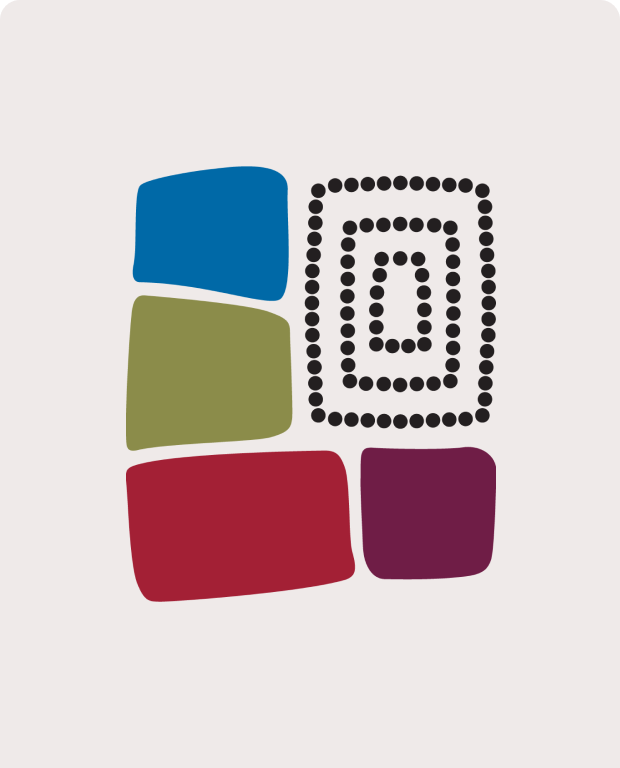NDIS Evaluation

Is the National Disability Insurance Scheme meeting the needs of Aboriginal and Torres Strait Islander people? Evaluating the roll-out in Queensland and the Northern Territory
Project Aim
This project aimed to examine the:
- Implementation of the NDIS Aboriginal and Torres Strait Islander Engagement Strategy.
- Interaction between National Disability Insurance Agency (NDIA) staff, local area co-ordinators (LACs), Aboriginal Community Controlled Health Services (ACCHSs) and non-governmental organisations (NGOs).
- Experiences of Aboriginal and Torres Strait Islander people in accessing the NDIS, planning, and receiving disability supports through the scheme.
Project Team
Project leader: Professor Margaret Kelaher
Project partners MJD Foundation Synapse Synapse Deakin University Victorian Clinical Genetics Services and, Northern Territory Genetics Services Genetic Services of Western Australia
Administering organisation: University of Melbourne
Project timeline: 01/03/2018—31/05/2019
Methodology
In order to better understand the context of data collected in this study, data from the National Aboriginal and Torres Strait Islander Social Survey (NATSISS) was analysed.
Analysed responses of people living with (n=2798) and without (n=3285) disabilities to questions about exposure to unfair treatment, avoiding situations because of unfair treatment, exposure to violence, exposure to threats and removal from natural family were considered. The situations where people reported that they were exposed to unfair treatment were also examined.
Sites for the project included Cairns, Townsville and four East Arnhem communities. A total of 54 people were interviewed: 4 NDIA staff members, 24 NDIS participants, 16 disability support providers, 2 organisational partners and 8 Community Connectors.
A final co-design workshop was held to review the extent to which the findings of the project resonated with key stakeholders, to refine recommendations and to develop clear suggestions for action.
Project Findings and Outcomes
The recommendations arising from the research provide guidance on how to better engage with Aboriginal and Torres Strait Islander communities and people with disabilities.
This is expected to lead to better understanding and acceptance of the NDIS by Aboriginal and Torres Strait Islander people living with disabilities and their families.
Recommendations were also made to improve support of disability support providers and the way the NDIS functions in remote areas, which would enable better coverage, choice and provision of services for Aboriginal and Torres Strait Islander communities and people living with disabilities.
Knowledge
The recommendations arising from the research provide guidance regarding how to better engage with Aboriginal and Torres Strait Islander communities and people with disabilities.
| Awareness | Aboriginal and Torres Strait Islander individuals and communities were involved at all stages of the research process, from the PRG, the co-design process and the final workshop.
The research team included Aboriginal members. Aboriginal community members were trained in research methods and ethics by University of Melbourne and employed as interviewers through the project partners, MJDF and Synapse. The findings have been shared through the following channels: HOT North Workshop, 14 March 2019, Katherine, Northern Territory International Union for Health Promotion and Education, World Conference on Health Promotion, 7-11 April 2019, Rotorua, New Zealand Lowitja Institute International Indigenous Health Conference, 18–20 June 2019, Darwin HOT North Workshop, 13 June 2019, Mount Isa QLD. |
| Behaviour | This project provides recommendations to improve coverage, choice and provision of services for Aboriginal and Torres Strait Islander communities. |
| Skills | As outlined above, Aboriginal and Torres Strait Islander individuals and communities were involved at all stages of the research process, from the PRG, the co-design process and the final workshop.
The research team included Aboriginal members and Aboriginal community members were trained in research methods and ethics by University of Melbourne and employed as interviewers through the project partners, MJDF and Synapse. |
Related resources
Understanding disability through the lens of Aboriginal and Torres Strait Islander people – challenges and opportunities, A. Ferdinand et al 2019, The University of Melbourne
Policy Brief: Understanding disability through the lens of Aboriginal and/or Torres Strait Islander people – challenges and opportunities
References
Nicholas, B., Mandy, Y., & Matthew, G. 2013, Paper 6: Disability, Centre for Aboriginal Economic Policy Research, Canberra. Australian Bureau of Statistics (ABS) 2017, 4430.0 – Disability, Ageing and Carers, Australia: Summary of Findings, 2015: Aboriginal and Torres Strait Islander people with disability, ABS, Canberra.
Aimee, V. & Declan, G. 2017, ‘Concern over speed of NDIS rollout in Indigenous communities as NSW launches approach’, ABC News,

